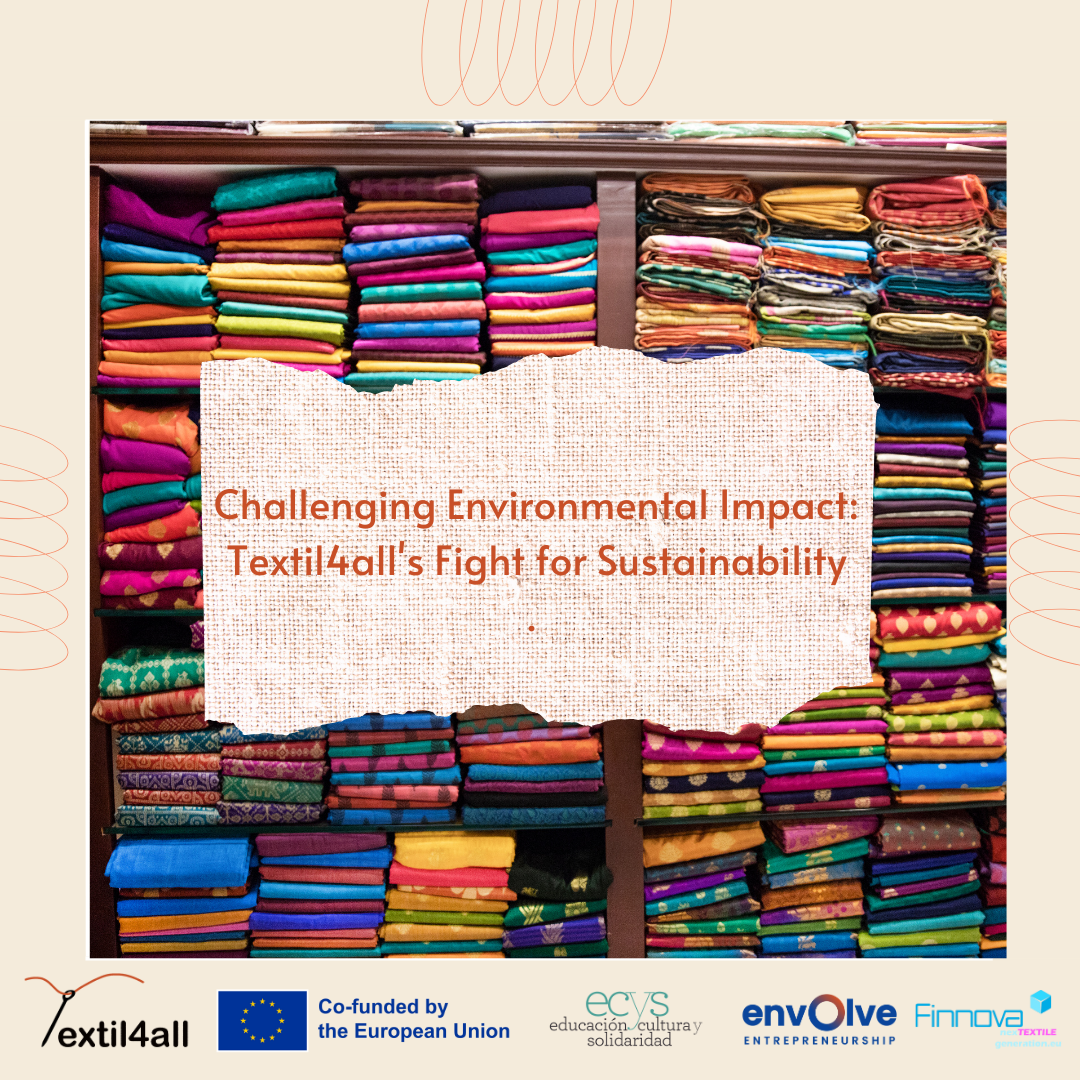At Textil4all, we are aware of the significant impact that the textile industry has on our planet.
As part of an Erasmus+ project focused on sustainability, we recognize our responsibility to drive positive and sustainable change. Today, we want to share with you crucial information about the environmental challenges we face and the actions we are taking to address them.
The Environmental Impact of the Textile Industry
The United Nations (UN) has shed light on the magnitude of the textile industry’s impact:
- It is responsible for 20% of global wastewater.
- It contributes to 10% of total carbon emissions globally.
These figures are alarming and represent an urgent call to action. Additionally, according to European Commission data, the textile industry was responsible for consuming 79 billion cubic meters of water and generating 91 million tons of waste in 2015 alone.The problem is exacerbated by the rise of «fast fashion,» which has drastically increased the number of garments produced and discarded. It is estimated that the fashion industry is responsible for more carbon emissions than all international flights and maritime shipping combined.
Water Pollution and Microplastics
The textile industry not only consumes large amounts of water but is also a significant source of pollution:
- It is responsible for 20% of water pollution worldwide.
- The dyeing process uses approximately 5 trillion liters of water annually.
- Washing synthetic textiles is the main source of primary microplastics in the marine environment, accounting for 35% of these microfibers.
Regulations and Directives: Our Framework for Action
The European Union has established clear guidelines to address this problem:
- The Waste Framework Directive 2008/98/EC establishes lines of action for waste management and treatment.
- The new Law 07/2022 on waste and contaminated soils requires:
- Mandatory separate collection in all municipalities from January 1, 2025.
- Prohibition of burning textiles in landfills.
These regulations are fundamental in guiding our actions towards a more sustainable and environmentally responsible textile industry.At Textil4all, we are committed to working in line with these directives and going beyond, seeking innovative solutions to reduce our environmental impact and promote sustainable practices throughout the textile production chain.

